What is the Paleo diet? It is a nutritious real foods diet that eliminates processed foods as well as grains. The Paleo diet is the original human diet, designed by nature itself, that we are genetically programmed to eat. The Paleolithic diet, also called the caveman diet, Stone Age diet, and hunter-gatherer diet, is a simple and healthy way of eating based upon the wild plants and animals that mankind ate during the Paleolithic era. It is the diet humans have subsisted upon for more than two million years.
Farming and Modern Civilization
Prior to the advent of farming, we were hunter-gatherers who lived on animal foods such as meat, fish, poultry, and game, and we foraged for vegetables, fruits, nuts, and seeds. Our Stone Age ancestors were nomadic cavemen who roamed the earth. Then 10,000 years ago with the onset of the agricultural revolution, something drastic occurred. Farming was born and the ability to store food gave birth to modern civilization.
The Paleo Diet and Diseases of Affluence
The diet of our hunter-gatherer, pre-agrarian ancestors was free of the toxic processed foods of today. Paleolithic man did not eat modern foods including nutrient deficient, high-calorie grains and processed sweeteners like sugar and corn syrup. Hence, our Paleolithic caveman ancestors did not have junk food. While they surely dealt with other adversities, they did not contract the diseases of modernity.
Once modern foods were introduced into our diet we began to suffer from the “diseases of affluence,” including diabetes, metabolic syndrome, obesity, and heart disease. Weston A. Price is a fabulous resource when it comes to investigating the diseases of modern man, and the foods we are biologically destined to eat. I bought a copy of his groundbreaking book, Nutrition and Physical Degeneration, in 2001 and keep it on my desk as I reference it often.
Why Do You Follow a Paleo Diet?
Everyone has their own reasons for going on the Paleo diet. Why did I choose the Paleo Diet? In 1998, I was diagnosed with celiac disease. I followed the gluten-free diet 100%, and saw little improvement. My digestive system remained in distress. So in 2001, I went on a strict grain-free diet. After two months, my digestive system felt dramatically better, and I’ve stayed on it ever since!
Here’s a link to my Paleo Recipes, there are hundreds on this site. Remember, all of my recipes are grain-free, gluten-free, and easy!
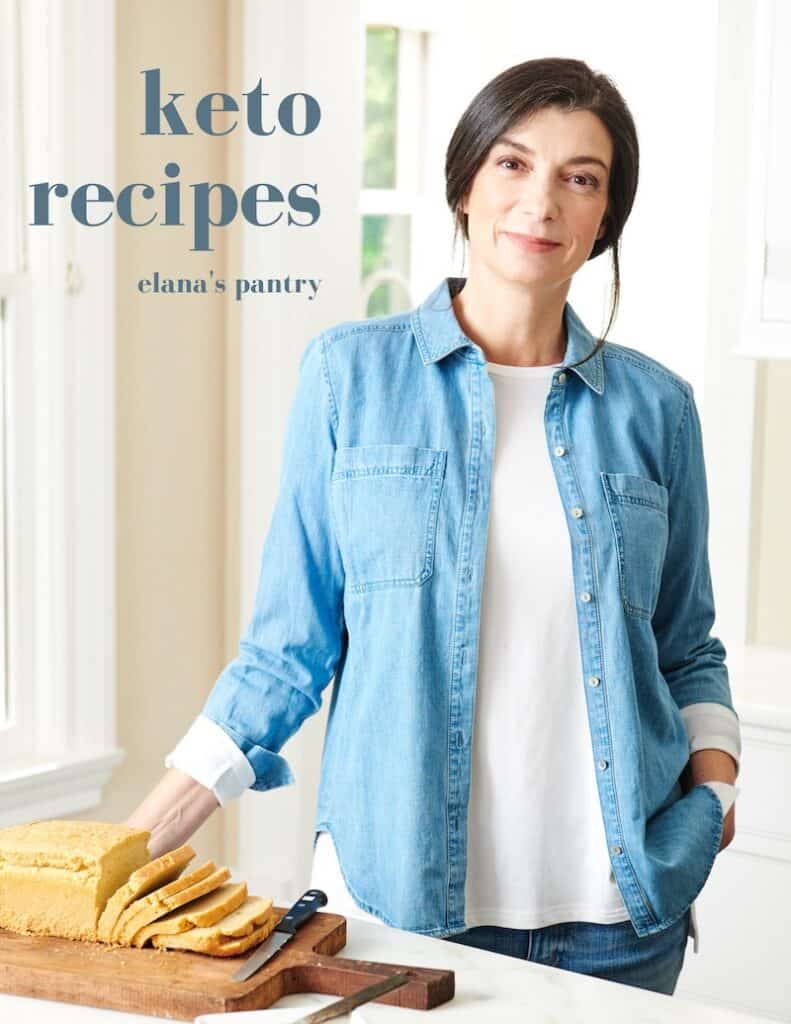
Free exclusive eBook, plus recipes and health tips, delivered to your inbox.
What Foods are Allowed on the Paleo Diet?
The diet of Paleolithic man is as popular as ever. Still, “Is that Paleo?” is a question I encounter daily. I’ve compiled the list of foods below (in alphabetical order) that are do’s and don’ts for the Paleo diet to make things easier for you.
Paleo Do’s
Fats -bacon fat, duck fat, ghee, grass fed butter, tallow
Meat and Poultry –(grass-fed, organic) bison, beef, chicken, duck, eggs, lamb, pork, turkey
Fish –wild caught, not farmed
Nuts –almonds, brazil nuts, cashews, macadamia nuts, pecans, pine nuts, pistachios, walnuts
Oils –avocado oil, coconut oil, flaxseed oil, macadamia oil, olive oil, walnut oil
Seeds –hemp seeds, pumpkin seeds, sunflower seeds
Vegetables and Fruit –local, organic
Paleo Don’ts
Grains –barley, buckwheat, corn*, oats, millet*, rice, rye, teff*, quinoa*, wheat (*grain-like seeds)
Legumes –beans, lentils, peanuts, soy beans
Refined Oils
Refined Sugar
Processed Foods –candy, chips, cereal, soda
For me, the Paleo diet or Primal diet, is easy when I think of it as avoiding grains, as well as modern processed foods, and sticking with the good whole foods listed above.
The Paleo Diet and Your Health
How does the Paleo Diet impact your health? I believe that some of the people who spend years going from doctor to doctor with undiagnosable and “untreatable” health conditions may simply be ill-adapted to eating grains.
I’m not saying that the Paleo diet is for everyone. All I can tell you is what I know from personal experience. The Paleo diet works very well for me. I eat basic foods including animal flesh, vegetables, fruit, nuts, and a lot of good fat. I sleep quite a bit. I allow myself to get plenty of fresh air every day. Some might call it Paleo. Others might call it common sense. Either way, it works for me.
What works for you? Leave a comment and let us know!

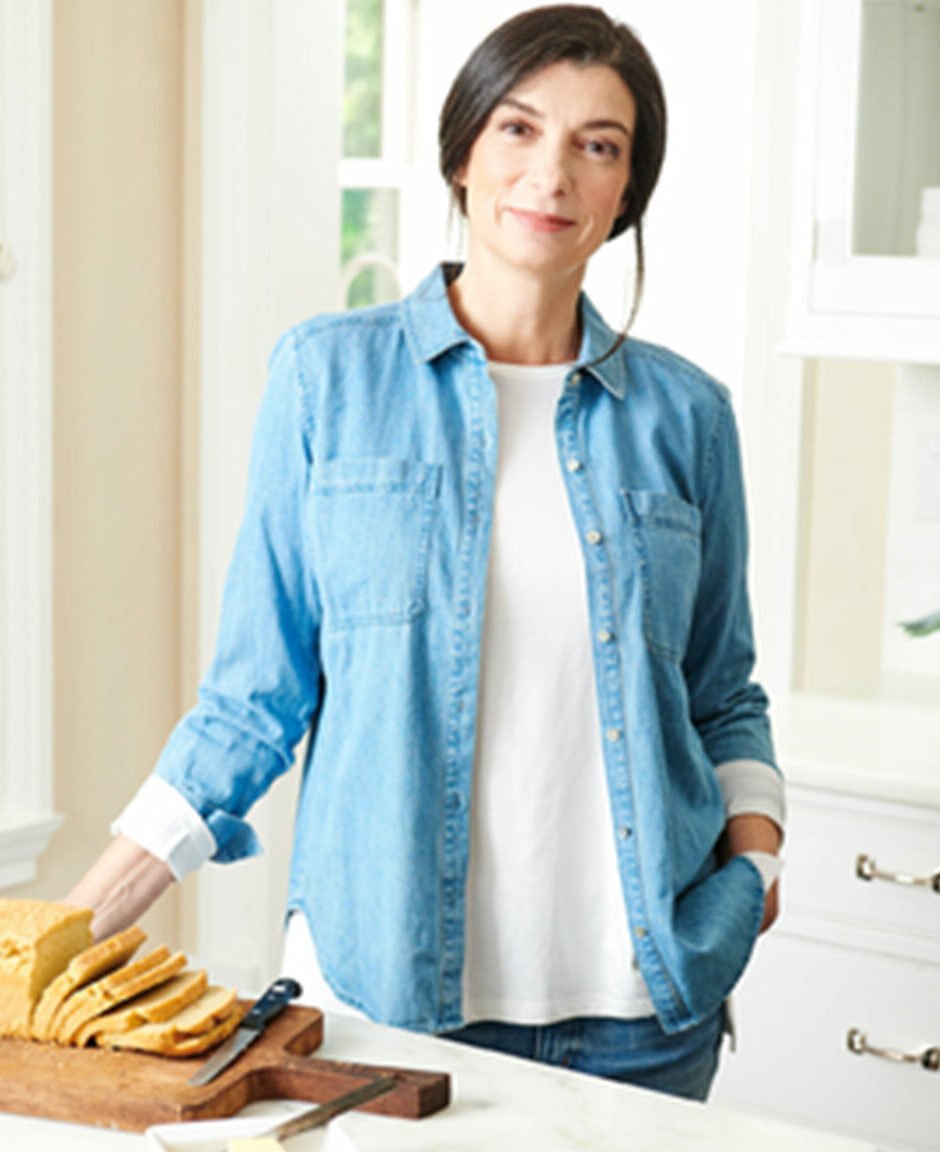
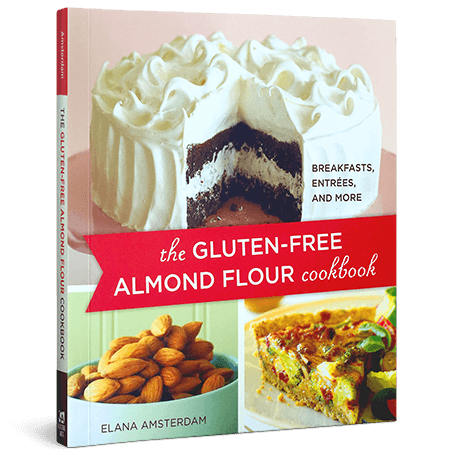
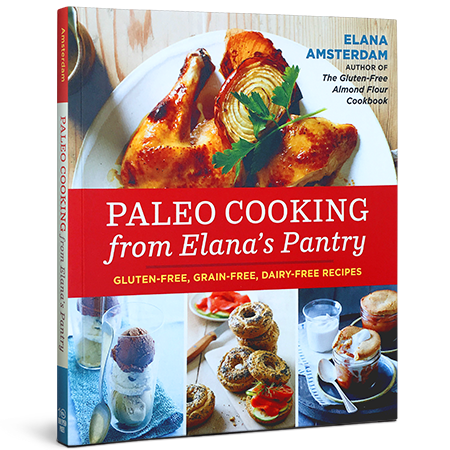
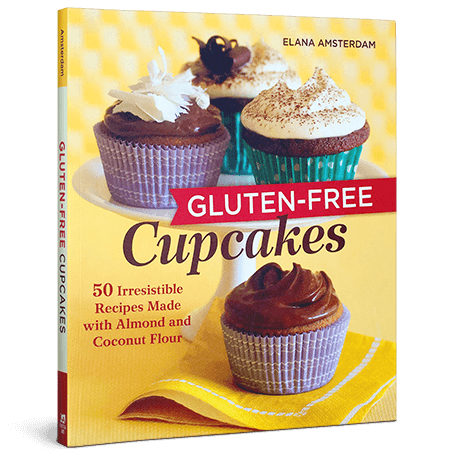
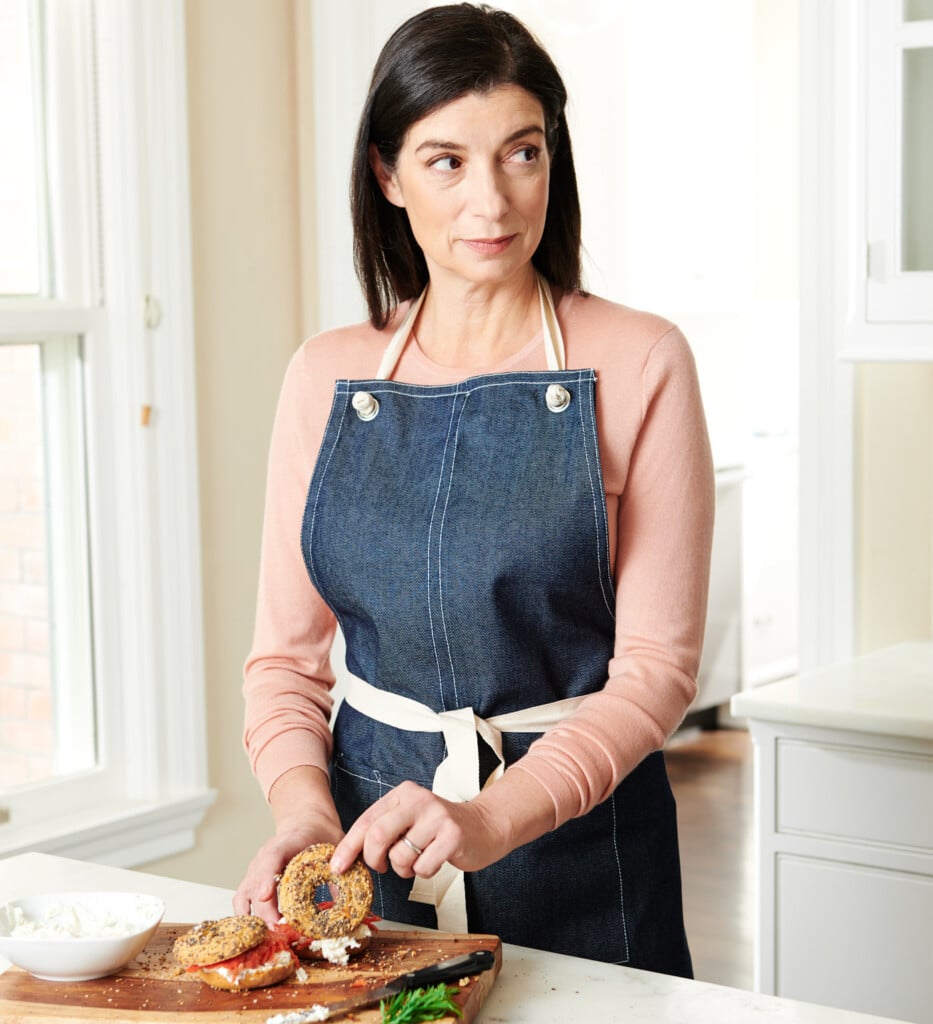
Praveeta says
Hi Elana
You are my go to authority of how to make anything delicious and healthy and I so appreciate you, thank you.
I also have been Paleo for some time and had to leave dairy behind as it upset me just like gluten, but since I have a source for raw milk I decided to give it a try and now I can have homemade kefir made with it and for me is ok and totally different than pasteurized product.
It’s nice to make ice cream with it.
Elana says
Hi Praveeta, thanks for your comment! So glad you found a source of dairy that works for you :-)
Karen says
Elana, I so appreciate your website and all the fabulous recipes. I’ve tried so many of them and they have become part of my Paleo “repertoire” over the years. And by “Paleo”, I mean all the kinds of things that you’ve mentioned in this post, with extra emphasis on including lots and lots of healthy fats.
As I’m reading the comments to this post, I’m also reading a new book called “The Obesity Code” by a Canadian doctor, a nephrologist named Jason Fung. At his Toronto-based clinic, he treats Type 2 diabetics with a low carbohydrate, high fat diet and intermittent fasting, and has an incredibly high success rate (something like 60% of his patients are off their T2D medication within 6 months of beginning the diet.) In the chapter that I’m currently reading, about eggs and cholesterol, he writes: “The cholesterol in eggs may actually help your cholesterol profile by changing cholesterol particles to the larger, less atherogenic particles. Indeed, large epidemiologic studies have failed to link increased egg consumption to increased heart disease.” He goes on to talk about the benefits of eggs, including how the antioxidants found in the yolks are protective against eye problems such as macular degeneration and cataracts. The book has references to the corresponding scientific references throughout.
Anyhow, for anyone interested in treating or preventing Type 2 diabetes through diet, or who wants to learn more about the (true) causes of insulin resistance and obesity, it’s an eye-opening read. Everything that’s in the book can also be found on the website intensivedietarymanagement.com
Have you ever heard of “the Semmelweiss effect”? The so-called Semmelweis effect, or Semmelweis reflex, is a metaphor for the reflex-like rejection of new knowledge because it contradicts entrenched norms, beliefs or paradigms. It is named after the 19th century Hungarian physician whose ideas about hand washing in hospital wards were ridiculed and rejected by his contemporaries, because his observations conflicted with the established scientific and medical opinions of the time. His colleagues were offended at the suggestion that they should wash their hands before touching patients, in part because it was widely believed that a “gentleman’s” hands could not transmit disease. Later, Semmelweis’ ideas were proven by scientists like Louis Pasteur and Joseph Lister.
We have to move past the established ideas—fat is bad, grains are good—and resist this “reflex” to believe outdated beliefs about food a medicine.
Thanks again for all you do!
Elana says
Thanks Karen :-)
monika says
i don’t know you but you are awesome!!!!!!!!!!!!!!!!!!!!!!!!!!!(and I’m Canadian so that’s a bonus that you write about a Canadian doctor)
Mari says
Hello Elana,
I notice that you and other paleolithic style blogs use canned coconut milk. However, I believe that you have also mentioned that you do not use other canned foods. Personally, I do not eat canned foods because of the aluminum. What are your thoughts on this?
Cheers!
Elana says
Hi Mari, thanks for your comment. I have an amazing recipe for a coconut cream pie in my 3rd book, Paleo Cooking from Elana’s Pantry:
http://amzn.to/1q1r9MO
I think you’ll love it because it’s made by cracking open a fresh coconut.
Enjoy!
Elana
Mari says
Ok but like I asked originally, what are your thoughts on using canned foods (because of the aluminum)? Thank you for your input.
Elana says
Hi Mari, I think it’s fantastic that you don’t use products with aluminum! I avoid it as much as possible :-)
marvelous.max says
My gripe with the “paleo diet” is that it does not attempt to integrate the foraging and hunting practises to obtain food. Food on the paleo diet is still caught, gathered mechanically, or FARMED. A farmed animal is in no way comparable to a free-ranging wild animal. It would be great if paleo people were not eating such an excess of meat and mutter “it’s still paleo right?” There’s no way our ancestors would have a steady supermarket supply of nuts, meat and oils. Ergo, I think that the problem is that the proportion of meat and nuts (extremely arduous to forage when not in season) is not the basis of our ancestral diet, and if oils are not a processed food then how can one even demonise pulses and grains that in fact were around as long as humans have been?
Elana says
Hi there! Thanks so much for adding your perspective to the mix. I appreciate it!
Mary Marguerite Kenny says
Hello Elana,
Thank you for this wonderful website. I’ve instinctively known almost since childhood that grains aren’t good for me.
I was already lucky to grow up in a family where we simply had no junk food (my mother considered boxed breakfast cereals and bottles of orange juice as junk, the same as candy). The highlight of the Sunday dinner was a cake she made for the weekly dessert. However we did eat a lot of rice, bread and beans.
Throughout my adult life, in periods where I ate more grains, I put on weight, had less energy, would drink more coffee and crave sweets and alcohol.
It was always easy to loose the extra 2-3 kg by cutting grains because all the other cravings just magically dropped. So it’s clear that eating cereals leads to sugar cravings.
Now approaching menopause I decided to snub grains, dairy and beans altogether but this time it’s not only about weight control but about feeling more balanced emotionally. So, after months of proteins and LOADS of vegetables on our plates. I wish I had done more than just flirt with the Paleo-style diet all those years and just married into it earlier!
I am convinced that the grains are especially bad for women, given that our hormones fluctuate monthly, as well as during pregnancy, birth and lactation and then menopause.
This hormone fluctuation affects not only our metabolism (weight) but also our emotional state, an important part of living a happy, balanced life with those we love (and also those we don’t).
Why exacerbate the effects of hormonal imbalances by adding sugar (cereals) and stimulants (coffee, thé) to the arsenal?
Put more positively, what better way for women to manage the effects of hormone fluctuation that to eliminate sugar-craving-inducing-grains?
I am not seeking a substitution for almond flour but the packaged flour is far too pricey.
Have you made almond flour from the almonds themselves?
I thank you for your natural, positive and very respectful contribution to wellness!
Elana says
Hi Mary, thanks for sharing your incredible observations. Yes, Paleo can really be quite a lifesaver for some of us! I haven’t had any success with using almond flour made from scratch, unfortunately. If you do, please stop back by and let us know what you find!
Ana says
I have made almond flour several times using a food processor. It is just much coarser than store bought flour,which can affect the end result of a recipe.
Give it a try! It is worth it!
Elana says
Hi Ana, thanks for your comment. We haven’t had any success using homemade almond meal in any of my recipes.
Deb says
I’ve made it successfully in a Vitamix. I soaked then dehydrated the almonds till very dry then did them in batches of about a cup at a time. You have to pulse and check frequently so you don’t end up with almond butter. The consistency is not as perfect as store bought but I used it as the base for a paleo carrot cake and it turned out lovely. All the ‘regular’ cake eaters at church raved over it.
Joe says
What about dairy? Cheese Milk?? Did not see listed on do or don’t?
Elana says
Joe, dairy is an agrarian product that was not available to Paleolithic man. However, many Paleo bloggers now consider dairy to be a Paleo food and it has become controversial.
Joe says
Thanks Elana. I thought of a couple others in my current diet. How about prunes and dates? Also why are peanuts not included as a nut in the ‘do’ section?
Elana says
Hi Joe, prunes and dates are fruits, though be careful with dried fruit as it is very high glycemic. Peanuts are a legume so they are not considered Paleo.
lisa says
Hi Elana,
Love your blog and cookbooks. I am primal – need milk in my coffee and a little yogurt and cheese on occasion does me well. I don’t eat grains, but have found, largely out of lack of other resources (I am currently living in China), that rice pancakes maybe once a week fulfills that carby craving and I digest it pretty well. When I return to the US, I will switch to coconut flour. Wish me luck. Feel a zillion times better with this eating lifestyle. And believe it or not, I was a vegetarian for over 20 years!
:)
Elana says
Hi Lisa, thanks for your comment! I am so glad to hear that you are enjoying my books and blog! It’s great that you have figured out the diet that works best for your system, in my opinion that’s the best possible thing to do :-)
Louise Laczko says
I eat buckwheat pancakes weekly and have absolutely no problem. Could it be that buckwheat has not been refined and messed with like the wheat grain has so it remains more “ancient”?
Elana says
Louise, I think that you might be someone that has adapted genetically to eating modern foods. When I say “modern” I am referring to foods cultivated in the last 10,000 years. Everybody’s different and we all need to listen to our own bodies when it comes to choosing what to eat :-)
Josie says
Hi Elana,
I have been gluten-free for about 4 years and started this journey because of diabetics and thyroid issues. I have been off all medications for both diabetics and thyroid, so this type of eating is working for me. I also have both of your books and follow your blog. I enjoy all of your recipes and especially all the variety of breads and muffins that take the place of bread. Thank you for spreading the word about healthy eating.
Elana says
Hi Josie, thanks for your comment! I’m so glad to hear that you are enjoying my books and blog :-)
Ginnis says
ahhh… dietary issues… I’ve been on a roller coaster this year. For over a decade, I’ve been gluten free. I also tend to eat very very little meat. Then I started to feel fatigue – or I should probably say that I am fatigued off and on … So in August or September, I decided to eat some beef, and I began eating meat at least once a day. Then in late November, my urine started smelling sweet, and I began to wonder if I had become diabetic. Getting dr’s appointments for such things always presents a challenge – so I went low carbohydrate – which increased my protein and fat intake. My urine still smells sweet (not like ammonia, but like maple syrup) but after a few glucose tests (including H1ac), it is pretty clear I am not diabetic. I am super healthy (well minor stuff) and I am 61. But it also became clear that my cholesterol had increased by 50 points. So, back to square one. I am not nuts about meat anyway – so I can go back to my previous primarily vegetarian diet. And I still do not know why my urine smells sweet. I just don’t know how I can keep my protein intake up without legumes though. Problems yet to be solved I guess.
Elana says
Hi Ginnis, my cholesterol is over 200 and I still eat eggs and beef. I don’t think high cholesterol is necessarily a bad thing. For more of my thoughts on that see this post:
https://elanaspantry.com/dark-side-of-statins/
Take care!
Elana
Ginnis says
Thanks Elana… Usually my cholesterol is between 190 and 210 with HDL and triglycerides in the favorable zone (for about 20 years). But I was just tested and it was 253. And I am concerned that is too high. I am going to reduce eggs substantially, and go back to eating a steak on an annual basis (along with other beef options). I am and have always been super fearful of statins and I am opposed to taking them. I am off to read your statements on this.
BTW I have your cookbooks and they are the best!! And I follow your blogs and recipes. Always wonderful.
Elana says
Hi Ginnis, my cholesterol ranges from 180 to 250 and I’m glad to have what is considered excess lipids as I need them for my brain to function in a healthy way. We’re all different though, with a variety of health considerations! I’m so glad to hear you are enjoying my books :-)